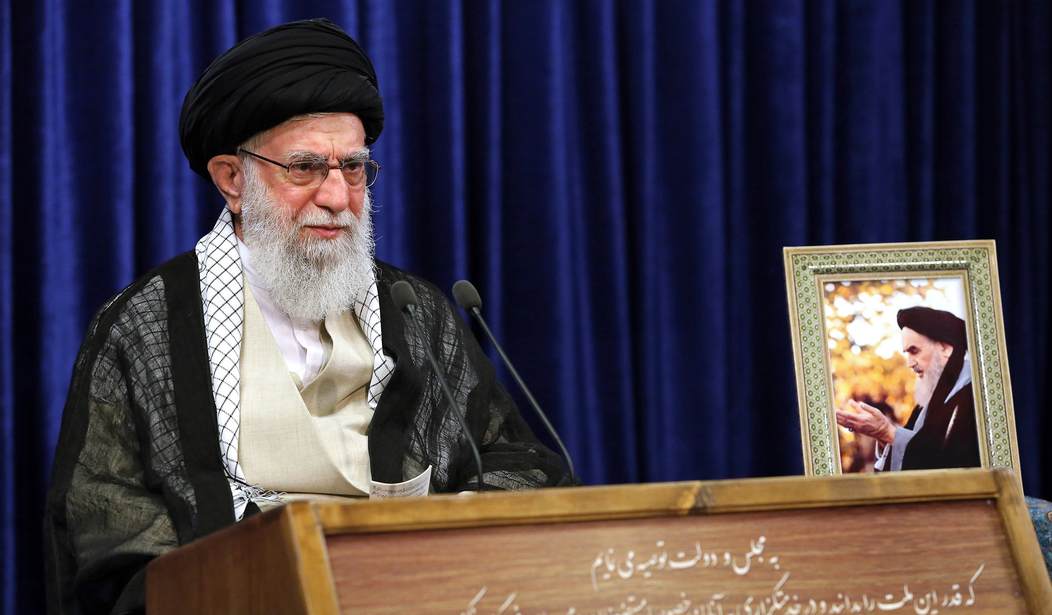When the Islamic Republic of Iran assumed power in 1979, it embarked on a mission to spread its corrupt version of government far and wide to serve its anti-Western ideology. Sadly, in doing this, the new regime radically affected the lives of the Iranian people for generations to come.
Formerly known as Persia, the nation of Iran is a paradox in the Middle East. The people who live there are mainly pro-Western, yet an anti-democratic system of government controls them. It's a tale of two Irans — one is an oppressive regime that withholds religious and human freedoms from its citizens. The other is a country occupied mainly by loving, non-violent, hopeful people.
We must draw a line in the sand to separate our views of the Iranian people from that of their leadership. The former is anything but the tyrannical religious extremists they're often thought to be in the West. They are a proud and ancient culture whose values starkly contradict Islamic values. They're on the opposite side of their government on almost every issue.
Given Iran's location in the Middle East, its Muslim majority, and its native language of Farsi, which resembles Arabic, Iranians are often mislabeled as Arabs. "We are not Arabs," you'll hear them say. "Islam was forced on us and is not an Iranian religion." While there is diversity in Iran, most Iranian people are culturally, ethnically, and religiously unique from their neighboring countries.
Another misconception is that people think Iranians hate the West, but this isn't true either. The hate-filled sentiments toward America are touted by Iran's government, not its citizens. Iranians envy our democracy and respect our nation's flag, probably more than some Americans do.
Recommended
Most Iranians are fed up with Islam. It didn't bring the promised utopia they expected following the Islamic Revolution more than 40 years ago, and recent events have left them more disillusioned. The regime's attempts to suppress the voices of its people by restricting internet access, blocking apps, and jamming satellite broadcasts is evidence the government is threatened by what ordinary Iranians think. A government for the people wouldn't cut them off from accurate reporting and connection with others.
Currently, we're watching the next generation of Iranians call for the overthrow of the Islamic Republic and demand greater social, religious, and political freedoms. Living in a society with hope and opportunity is something they've only heard about and imagined.
Historically, the culture of the Iranian people has always been warm, friendly, and loving. The nation has an ancient heritage of religious tolerance dating back to King Cyrus, the great Persian king who is widely seen as a national symbol of pride in Iran. An open-minded, tolerant leader, he was the first to install freedom of religion and worship more than 2,700 years ago. His legacy is thought to have influenced the U.S. Constitution. Yet, Iran itself has struggled to achieve democracy.
We can never stop standing with the Iranian people in their fight for freedom. They need our support now more than ever before. The Islamic Republic is not backing down anytime soon, and the people are desperate for hope. As the government continues to reveal its true nature, millions of Iranians reject Islam, the only religion they've ever known, and become open to accepting Christ.
The landscape of faith in Iran is changing and will directly impact the nation's future. Please join me in continued prayer and support for the people of Iran.
Dr. Hormoz Shariat is the founder of Iran Alive Ministries, which utilizes Satellite TV to reach the millions of lost and broken people in Iran and the rest of the Middle East. Today, they broadcast the Gospel 24/7 from their studio in Dallas to Iran and the Middle East, trusting the Lord to use them to transform an Islamic nation, which is responding to the Gospel unlike any other time in history, to a Christian nation. Dr. Shariat firmly believes that Iran will be the first Islamic nation that turns to Christ. He is the author of the book “Iran’s Great Awakening,” which is the No. 1 source of information about what is happening in Iran today, and how the Bible prophecies align with the current events.
























Join the conversation as a VIP Member